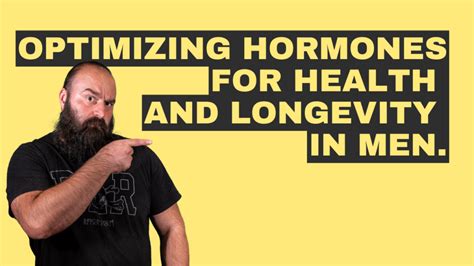What specific macro nutrient timing strategies boost male hormone health & training performance?

For men striving to optimize both their physical performance in the gym and their overall hormonal health, the ‘what’ of nutrition is crucial, but the ‘when’ can be equally, if not more, impactful. Strategic macronutrient timing goes beyond simply hitting daily targets; it’s about providing the right nutrients at the right moments to support energy levels, muscle repair, and the intricate hormonal symphony that dictates strength, vitality, and well-being.
Understanding the Interplay: Hormones, Macros, and Performance
Male hormone health, particularly testosterone levels, is profoundly influenced by diet. Chronic under-eating, excessive calorie restriction, or an imbalance in macronutrients can lead to suppressed testosterone and increased cortisol (a stress hormone), negatively impacting muscle growth, recovery, mood, and libido. Similarly, training performance—from strength and endurance to focus—relies heavily on the availability of energy and building blocks supplied through food. By aligning nutrient intake with physiological demands, we can create an environment conducive to higher testosterone, lower cortisol, improved recovery, and peak performance.

Carbohydrates: Fueling Performance and Regulating Cortisol
Carbohydrates are the primary fuel source for high-intensity exercise and play a critical role in replenishing muscle glycogen stores. From a hormonal perspective, adequate carbohydrate intake, especially around training, helps to mitigate cortisol spikes. When carbohydrate intake is too low, the body may perceive this as a stressor, leading to elevated cortisol, which can counteract testosterone’s anabolic effects.
- Pre-Workout: Consuming complex carbohydrates (e.g., oats, sweet potatoes) 1-3 hours before a workout provides sustained energy, preventing fatigue and maintaining blood glucose levels.
- Post-Workout: Simple and complex carbohydrates immediately after training help rapidly replenish glycogen, which is crucial for kickstarting recovery and signaling an anabolic state, further aiding in cortisol modulation.
Proteins: The Foundation for Muscle and Recovery
Protein timing is perhaps the most well-known aspect of athletic nutrition. Adequate and timely protein intake is essential for muscle protein synthesis (MPS), muscle repair, and recovery. While a constant supply of amino acids throughout the day is important, specific timing around workouts maximizes its benefits.
- Pre-Workout: A modest amount of protein (e.g., 20-30g) before training can provide amino acids to reduce muscle breakdown during exercise.
- Post-Workout: The anabolic window post-exercise is a critical time for protein intake (e.g., 20-40g, preferably whey protein due to its rapid absorption) to maximize MPS and facilitate repair. This is paramount for muscle growth and recovery, indirectly supporting an anabolic hormonal environment.

Fats: Essential for Hormone Synthesis
Dietary fats, particularly healthy monounsaturated and saturated fats, are indispensable for male hormone production. Cholesterol, derived from dietary fats, is a precursor to steroid hormones, including testosterone. Insufficient fat intake can directly impair testosterone synthesis.
- Daily Intake: Focus on maintaining a consistent intake of healthy fats (e.g., avocados, nuts, fatty fish, olive oil) throughout the day, rather than strict timing around workouts.
- Timing Consideration: While fats are crucial, consuming large amounts directly before or after a workout might slow digestion of other macros, which could be counterproductive for immediate fueling or recovery. It’s generally better to consume larger fat portions in meals further removed from training sessions.
Strategic Timing: Pre-, Intra-, and Post-Workout Nutrition
This trifecta is where precise macro timing truly shines for both performance and hormonal recovery.
Pre-Workout Fueling
The goal is to provide sustained energy and prevent catabolism. A meal 1-3 hours prior should consist of complex carbohydrates, lean protein, and minimal fat. This primes the body for intense activity, ensuring glycogen stores are topped off and amino acids are available.
Intra-Workout Support
For workouts lasting longer than 60-90 minutes or involving multiple sessions, intra-workout carbohydrates (e.g., dextrose, cyclic dextrin) can prevent performance drop-off and maintain blood glucose, thus limiting cortisol release. BCAA or EAA supplements can also be used to further minimize muscle breakdown.
Post-Workout Recovery Window
This is arguably the most critical timing window. Within 30-60 minutes post-training, a combination of fast-digesting carbohydrates (e.g., fruit, white rice) and quick-absorbing protein (e.g., whey) is ideal. This combination rapidly replenishes glycogen, stimulates MPS, and shifts the body from a catabolic (breakdown) to an anabolic (building) state, which is crucial for hormonal balance and recovery.

Daily Macro Distribution for Hormonal Balance
Beyond the workout windows, the overall distribution of macros throughout the day influences hormonal health. Consistent protein intake every 3-4 hours helps maintain positive nitrogen balance. Adequate fat intake spread across meals ensures a steady supply for hormone synthesis. Prioritizing carbohydrates around training and reducing them slightly in evening meals (if not training late) can optimize energy utilization and recovery cycles.
Some men also experiment with intermittent fasting (IF), which can have benefits for insulin sensitivity and growth hormone. However, if using IF, it’s even more critical to ensure adequate nutrient intake during the eating window to prevent energy deficits that could negatively impact testosterone or recovery.
Beyond Timing: Quality and Consistency
While timing is a powerful tool, it doesn’t supersede the importance of overall dietary quality and consistency. Whole, unprocessed foods rich in micronutrients provide the foundational support for hormonal health and robust training performance. Zinc, magnesium, and Vitamin D are particularly important micronutrients for testosterone production, often found in a balanced macro-rich diet.

Conclusion: Harnessing Timing for Optimal Results
Strategic macronutrient timing is a sophisticated approach to nutrition that can significantly boost male hormone health and training performance. By consciously planning your carbohydrate, protein, and fat intake around your workouts and throughout your day, you provide your body with the precise fuel and building blocks it needs to optimize recovery, support anabolic hormone production like testosterone, and smash your performance goals. It’s not just about eating enough; it’s about eating smart.










